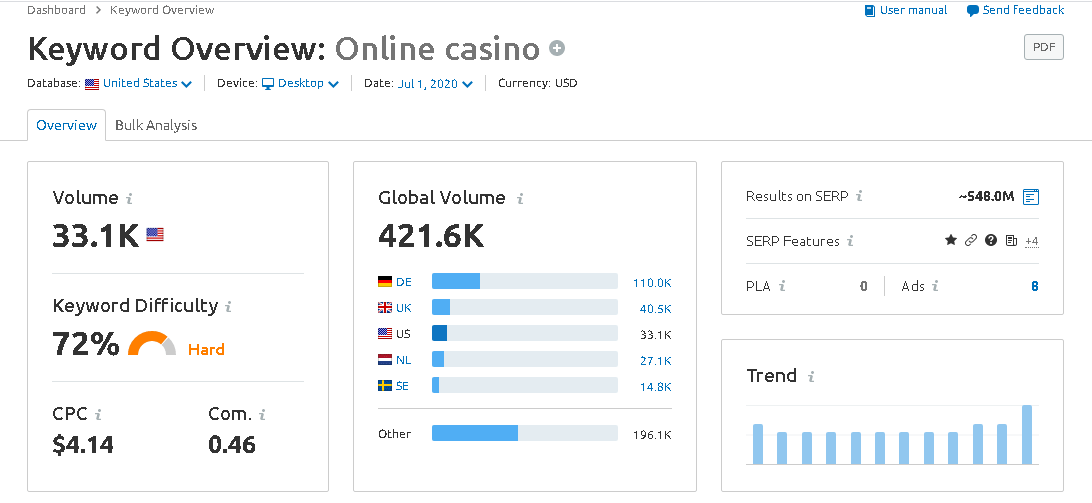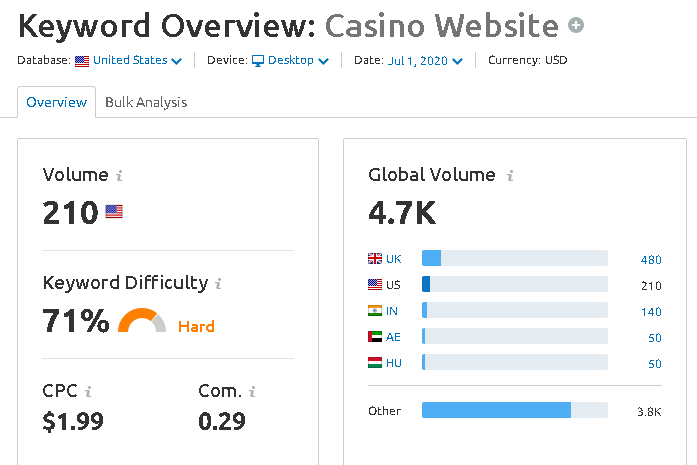The Truth About Keyword Volume
Keyword search volume is the cornerstone of SEO (Search Engine Optimization). One powerful keyword/ popular search engine query can build an entire business or brand.
And concerning organic search traffic, a keyword is how you bait users to your content. Yes, in the past webmasters could just spam search engines using keyword stuffing techniques. But as Google and other search engines move toward user-centred services, we understand the real purpose of Keyword to be simple – as a user, the search query represents a question. As a webmaster, you must satisfy the user’s information needs.
And contrary to popular belief, this is exactly why #allkeywordsmatter. Each keyword, no matter high volume or low volume, represents an information need that you can satisfy.
What is Keyword Search Volume?
Keyword Search Volume is self-explanatory. The number of times a specific search query appears is the search volume. And it naturally becomes a keyword when it garners enough queries (Shewan, 2019).
The volume of a keyword is determined over a set period. And of course, the data is often put studied and understood in context first so that SEO webmasters and marketers see how the keyword performs. And in some cases, a keyword can be seasonal. For example Christmas movies, Christmas carols are not high volume keywords in February.
And in the same breath, other keywords are consistent all year round.
The Importance of Keywords?
As we all know, keywords are bait we use to bring users to our sites when we know can satisfy their search queries. If you have no keywords in your content, then users won’t find your website (Soulo, 2020).
The common mistake made by webmasters is focusing solely on high volume keywords. Why is this a problem?
- All Keywords matter – whether big or small, a keyword represents an established user search query by users. If we neglect low volume keywords, we abandon an existing group of queries.
- Targeting high volume keywords makes you less competitive. If you are a new or smaller site, It’s hard to compete with bigger sites using high search volume keyword. So niche keywords may be the best route to ranking for you.
- As webmasters, we all want keywords that convert into users; these are high volume and low competition. And because this is impossible, we can find a way around it.

An example of a High Volume Keyword

An Example of a Low Volume Keyword

Low Volume Keywords – Are They Worth Using?
Now that we’ve elaborated on the known use of keywords. Let us explain why low volume keywords can be important. It is highly unlikely to rank for a high volume keyword. So if you want to rank then a low volume keyword is the best bet.
Low volume keywords don’t have good conversion rates, but you can rank. And if the keyword is relevant to your audience, it will bring in an audience. And put you in the running of competing with the number one site.
How to Capitalize on Your low Volume Keywords
The tricky part about low volume keywords is that not every single one has the potential to bring in players. This means that not every keyword is created equal.
Here is how to find a low volume keyword and how to use it.
- Competitor Research
The low click, high impression keywords on your competitor’s website should not be overlooked. They are already established as keywords, but your competitor is too busy ranking with a high volume and competitive keyword to notice. You can use these keywords and attract all the users to your content.
- Building relevance in niche markets
Sometimes the reason a keyword isn’t high volume is that many users haven’t thought to use it as yet. However, because of Google’s gradual shift towards natural language and disambiguation. Keywords that are synonyms or maybe less popular for other reasons will get their time in the sun. If more users that use a niche or small keyword find themselves where they want in terms of the answered search query. The said keyword will start gaining relevance and growth (Foster, 2019).
- Focus on “Call To Action Keywords
If you are going to focus on smaller keywords that in the beginning, will attract small rewards. Then you might as well use a call to action keyword. This will include qualifiers such as “Play” “Win” and “Best” and so forth.
These keywords are queries that let us know that players are just looking for a specific option in the product, and if we can offer them, then we should make that clear.


